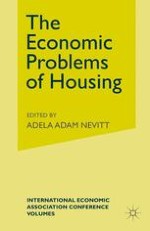1967 | Buch
The Economic Problems Of Housing
Proceedings of a Conference held by the International Economic Association
herausgegeben von: Adela Adam Nevitt
Verlag: Palgrave Macmillan UK
Buchreihe : International Economic Association Series
Enthalten in: Professional Book Archive
